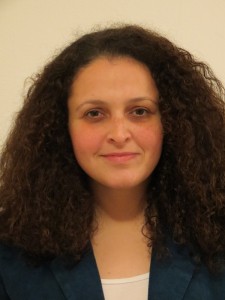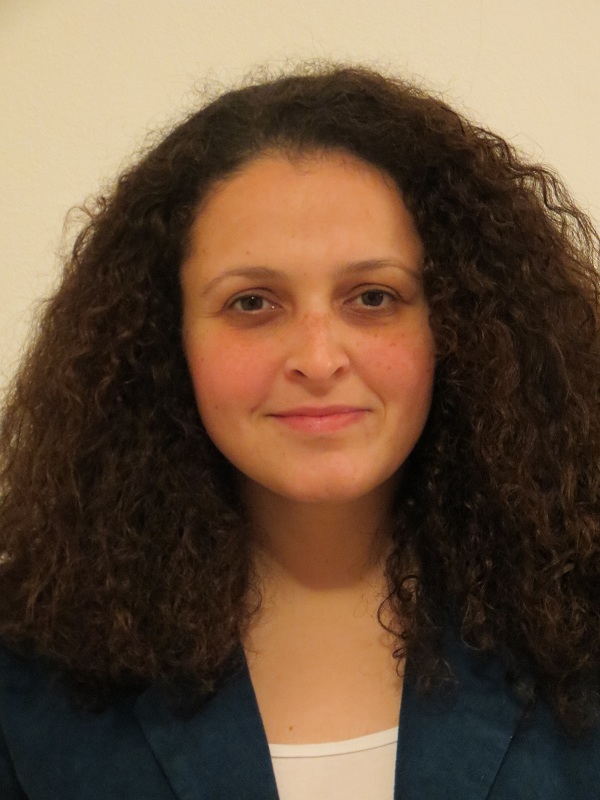
For the past three weeks, most Egyptians have been living in fear; the Coptic community more than any other group.
Since the ousting of Mohamed Morsi by the people and with the help of the armed forces, there have been systematic attacks on Christian-affiliated buildings throughout the country.
As of Thursday, 45 churches have been attacked; many architectural gems have been burnt to the ground. Shops and buildings belonging to Christians have been marked in Al-Minya governorate in Upper Egypt, known for its Coptic community, with a black “X” by radicals.
Copts lived in fear seeing many of their churches, schools and orphanages attacked and torched, while being verbally abused by the attackers. The Muslims who formed neighbourhood watches to protect their Christians neighbours offered little solace to those living in fear in their own country.
The Muslims who did not belong to or sympathise with the Muslim Brotherhood were not faring much better on the psychological level. Radical sheiks verbally abused them on their private channels, questioned their faith and at times called them infidels. Caught in an emotional war fuelled by the abuse of religion, many Muslims were filled with rage for their religion and for the use of said religion to prosecute Copts, Shias and anyone who did not conform to the Brotherhood’s way of thinking.
But let’s back up a bit to examine the facts that brought the country to this congested state.
In June 2012, Egyptians willingly helped Mohamed Morsi become the first civilian president of Egypt. Believing that he and his Brotherhood were “God-fearing” men, they elected him in hopes of a better life.
In his year of power, Morsi’s government showed a lack of vision that was alarming; while the human rights situation was not improving and his two constitutional declarations that put him on the path to become a dictator riled many, it was the failing economic decisions and the lack of security that drove the already weary Egyptians to the brink.
Thus, the Tamarod (Rebellion) campaign emerged, collecting 22 million signatures and ID numbers of those wanting to oust Morsi within two months. Some doubted the number, but the millions who took to the streets on 30 June were living proof of the will of the majority.
In every governorate, citizens gathered to peacefully demand that Morsi step down. Although people anticipated deadly clashes with Brotherhood supporters, they took to the streets, willing to die out of the desperation. On that night, they discovered they were not alone; that millions felt the same way. The discovery was euphoric to many, especially those who never participated in a demonstration before.
For three days, Morsi remained defiant, believing the protests will die out, but the will of the tired, desperate people prevailed and on 3 July the armed forces sided with the people, ousting Morsi.
On the streets people were jubilant. They did not, and still do not care, whether the west labelled it a “coup”, a “military takeover” or a spaceship invasion. They have been living in a country torn by sectarian incitement made by radical sheiks, backed by Morsi and the Brotherhood, where they were barely making ends meet.
A reporter asked me a couple of days ago, “but the Brotherhood believes that they elected Morsi who has legitimacy.” To which my response was “I understand, but whensomeone who can barely feed their children takes to the streets and tells me his children are hungry because of Morsi, then what can I say?”
A man who works with horses near the pyramids when I asked him about his skinny horses told me, “I swear I feed them one day and my children the other day.” How can I explain legitimacy to him?
Thus, while many foreign reporters wrote about the loss of the Arab spring, Egyptians were too busy with a feeling they almost forgot about: hope.
As Egypt started to move forward with the roadmap for a new fair elections and an interim leadership, Morsi supporters decided to hold a sit-in at Rabaa Al-Adweya mosque, asking for Morsi’s “legitimate” return. With his photos held in every hand, the sit-in was a Morsi love-fest.
A week into the sit-in, the Brotherhood decided to change tactics; Morsi’s photos disappeared, demands for his return quieted and the sit-in became the “anti-coup” sit in. The new image better suited the western perspective, and in turn, the media.
What was not reported was the systematic attacks on Rabaa residents, the checkpoints they had to go through on a daily basis, the women who had to cover their hair to pass the sit-in for fear of attack and the torture that took place inside the sit-in to people who were suspected to “not belong”.
Several Egyptian journalists were attacked inside the sit-in including an AFP photographer. The media centre inside Rabaa confiscated cameras to “check the photos”. Of course, this was mainly done to Egyptian reporters, and not all of them. Foreign reporters, however, were quite impressed with the Rabaa tour offered by the sit-in organisers.
Another sit-in emerged at Al-Nahda square in Giza. This sit-in was smaller and much less organised. Problems started to emerge between the protesters and the residents until the fateful 2 July when clashes ensued and 23 residents of Bein Al-Sarayat, near the sit-in, were viciously killed. Until this day, there is a vendetta between the Brotherhood and the residents.
Morsi supporters killed residents in sporadic clashes throughout July and August in different areas: Bein Al-Sarayat, Al-Manial, Al-Kit Kat, Boulaq, Al-Haram, October bridge, and that was in Greater Cairo alone. Alexandria also witnessed the brutality of the Brotherhood and Morsi supporters, burying eight people last week.
Vendettas live on in this country.
Reports of armed protesters spread and people became more worried.
On Wednesday, Egypt woke up to news of the sit-ins dispersal. On the streets, many were cheering and helping the police. The Al-Nahda sit-in, despite having weapons, was dispersed with minor causalities. Rabaa, however, was a mess. Officially there are over 600 bodies, 51 belonging to the police force.
Despite safe passages for women and children who wanted to leave the sit-in, death prevailed.
The Ministry of Interior viewed it as a victory that out of the thousands at the armed sit-in, the causalities were in the hundreds. The Brotherhood called it a massacre. The people on the street were shocked by the amount of blood and the number of weapons found in the sit-in.
In Mohandessin, a neighbourhood near the Daily News Egypt offices, Morsi supporters were running around with AK47s. Many felt bad about the dead, but at the same time they were too busy trying to protect their families from armed men roaming the streets in Egypt looking for their deposed president.
The climax was Friday. The Brotherhood called for fresh demonstrations. Their peaceful supporters were wielding AK47s in my neighbourhood, which overlooks the 15 May Bridge, which they had blocked. A neighbour’s window was penetrated by a bullet, and another local resident was shot while looking at the scene from his window.
Several police stations were attacked as well as two churches in Al-Minya. Clashes in several governorates erupted with residents facing off with armed Morsi supporters.
In Ramses, when Brotherhood members headed to Al-Fatah mosque, after the curfew which was imposed on Wednesday by President Adly Mansour, it was a street war. Violence spread, with Brotherhood supporters firing at anyone in sight, and the police and the military responding. A blood bank was burnt after an adjacent building was set on fire.
Ramses residents, who have their own vendetta with the Brotherhood since clashes on 6 October Bridge in late July , helped the police according to eyewitnesses.
Currently there are fresh calls for demonstrations from the Brotherhood, which , throughout the last month, has refused several initiatives offered by different groups, including the highest Islamic body Al-Azhar, to go back to the negotiation table.
As reporters, we called them on an almost daily basis and their stoic response was “Morsi has to be reinstated”, refusing to offer an alternative or a middle ground. They refused to acknowledge the millions who took down Morsi, remaining as arrogant as usual in thinking that Egypt would succumb to their threats.
Throughout the last month, there have been systematic attacks in Sinai. Brotherhood and Freedom and Justice Party Leader Mohamed El-Beltagy in a video interview said: “the attacks in Sinai will continue until Morsi returns to power.”
These attacks have left an estimated 50 army personnel dead so far. Attacks targeted checkpoints and police stations with RPG and homemade bombs as well as fire arms.
The same group has also been calling for foreign intervention in Egypt for the better part of last month, making Egyptians despise them even more. In Egyptian culture, this is taboo.
The Copts, who have had their churches burnt to the ground and are considered by the international community a minority group, have not called upon anyone but their fellow Egyptians for help. Many Copt activists spearheaded an initiative refusing “foreign intervention” on their behalf.
The Christian community is currently very angry with the western administrations for their stance in the latest events. The Coptic Orthodox Church took a historical step on Friday and issued a statement denouncing the western coverage of the latest events, refusing foreign intervention and promising that Egypt will not fall victim to sectarian strife. For many Egyptians, this is the definition of patriotism.
Currently, Egyptians are fighting to protect their way of life against an armed group that is clearly backed by western administrations. This backing is making Egyptians ever more resolute to get rid of the Brotherhood and they will. This group is currently being isolated by society, not just the security apparatus.
The problem is how to heal Egypt after all the death and blood; The Egyptian community is a familial one where people are always sticking their noses in each other’s business. In each neighbourhood, people know each other, their families, and their “affiliations”. How will the Brotherhood sympathisers be re-integrated in society?
People who have buried their children on all sides are currently suffering: the residents who were caught in the crossfire, the innocents who were used by a radical group, the Copts and Shias who were verbally abused, the woman who was assaulted because of her lack of veil, among others.
The Egyptian community in the coming period needs spiritual and political leaders to step up and help it heal; to have live debates on state TV for everyone to watch where grief is shared and opposing point of views are portrayed. Ways to accept the other and renouncing violence have to be drummed up in this aching community.
There are a lot of challenges ahead for this country, but accepting an armed group on the negotiating table is not one of them, despite western backing.
And to western tax payers, in particular the Americans; your money is used by your government to back such groups throughout the developing world. In March, John Kerry released $250m in aid after meeting Morsi, and this is the tip of the iceberg. Isn’t it time to question where your hard-earned money goes
